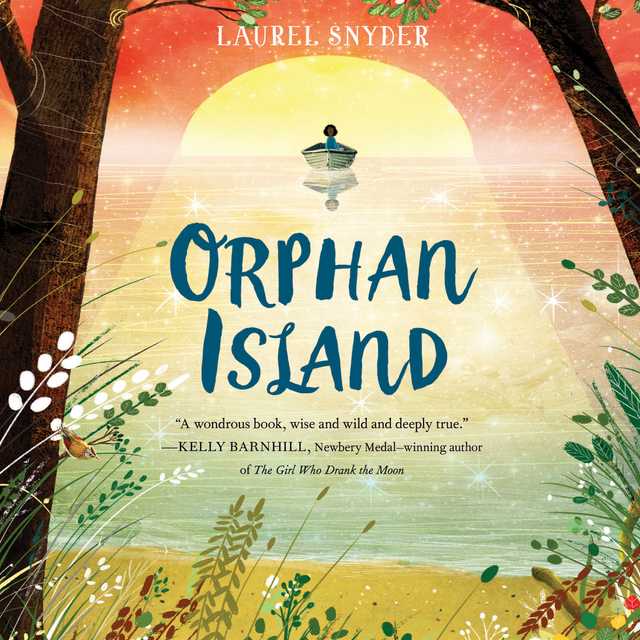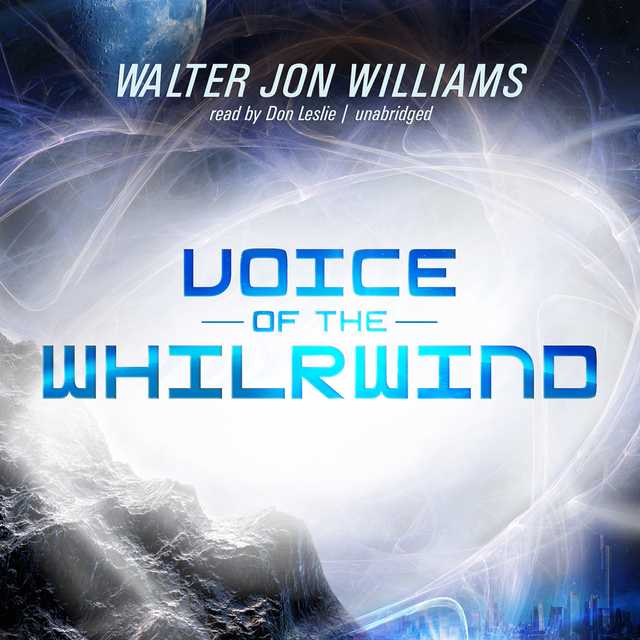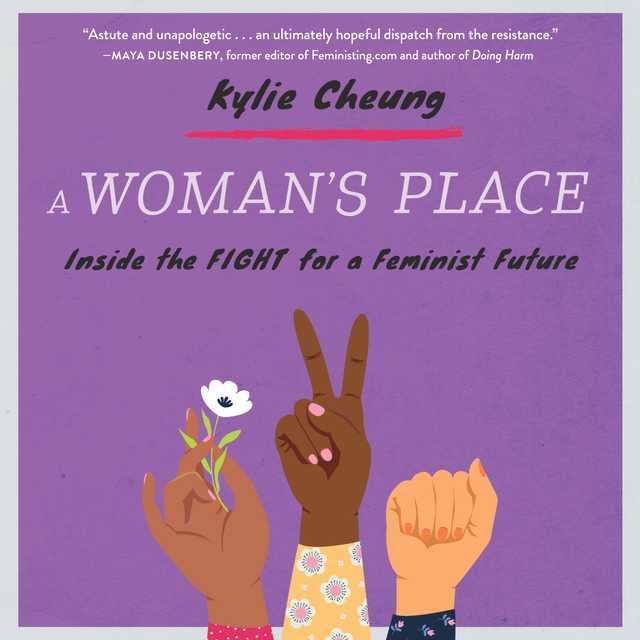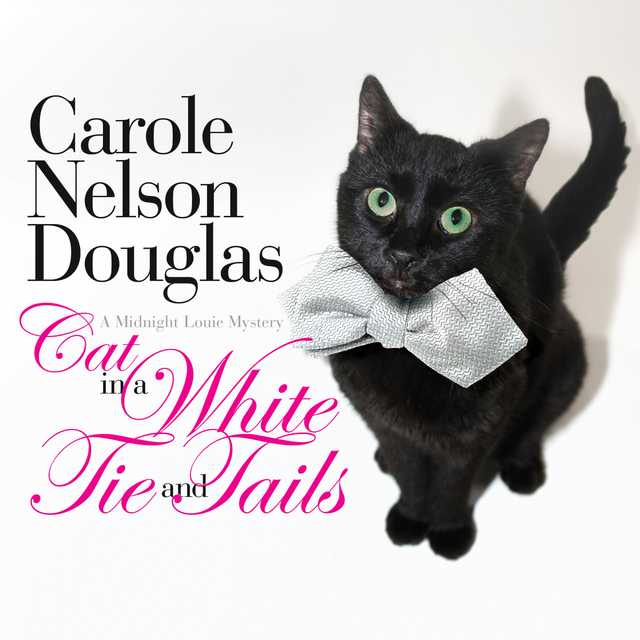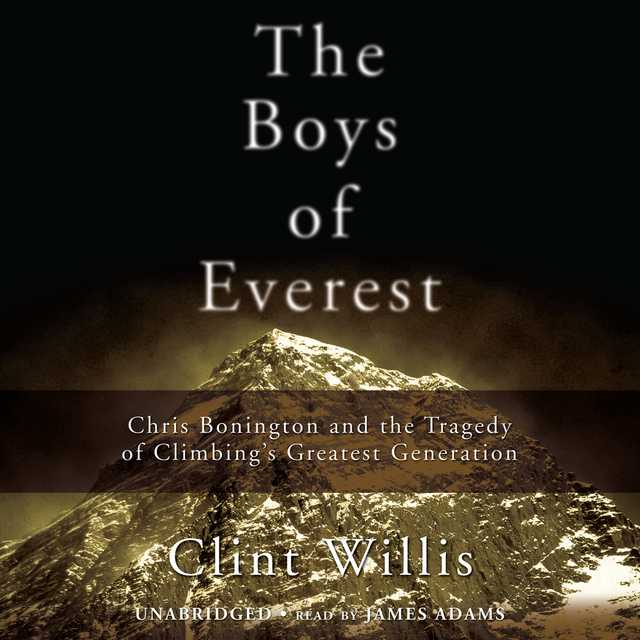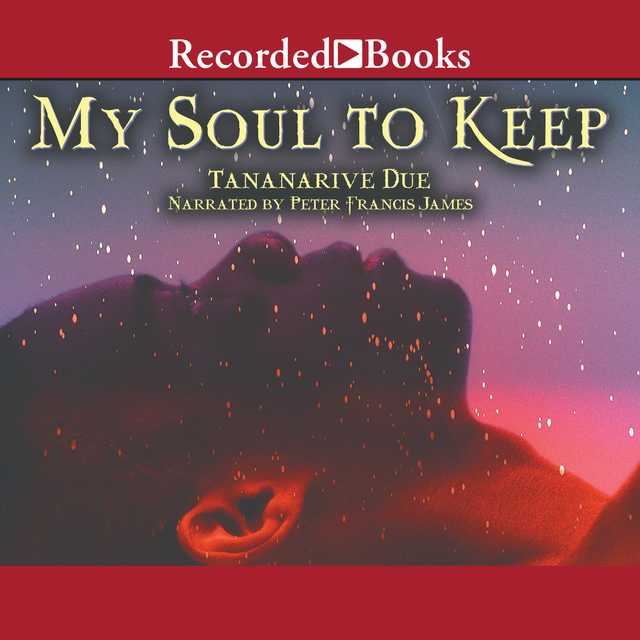Orphan Island Audiobook Summary
A National Book Award Longlist title!
“A wondrous book, wise and wild and deeply true.” –Kelly Barnhill, Newbery Medal-winning author of The Girl Who Drank the Moon
“This is one of those books that haunts you long after you read it. Thought-provoking and magical.” –Rick Riordan, author of the Percy Jackson series
In the tradition of modern-day classics like Sara Pennypacker’s Pax and Lois Lowry’s The Giver comes a deep, compelling, heartbreaking, and completely one-of-a-kind novel about nine children who live on a mysterious island.
On the island, everything is perfect. The sun rises in a sky filled with dancing shapes; the wind, water, and trees shelter and protect those who live there; when the nine children go to sleep in their cabins, it is with full stomachs and joy in their hearts.
And only one thing ever changes: on that day, each year, when a boat appears from the mist upon the ocean carrying one young child to join them–and taking the eldest one away, never to be seen again.
Today’s Changing is no different. The boat arrives, taking away Jinny’s best friend, Deen, replacing him with a new little girl named Ess, and leaving Jinny as the new Elder. Jinny knows her responsibility now–to teach Ess everything she needs to know about the island, to keep things as they’ve always been.
But will she be ready for the inevitable day when the boat will come back–and take her away forever from the only home she’s known?
“A unique and compelling story about nine children who live with no adults on a mysterious island. Anyone who has ever been scared of leaving their family will love this book” (from the Brightly.com review, which named Orphan Island a best book of 2017).
Other Top Audiobooks
Orphan Island Audiobook Narrator
Kim Mai Guest is the narrator of Orphan Island audiobook that was written by Laurel Snyder
Laurel Snyder is the author of picture books and novels for children, including National Book Award nominee Orphan Island and the Theodor Seuss Geisel Award winner Charlie & Mouse. A graduate of the Iowa Writers’ Workshop, she currently teaches in Hamline University’s MFA in Writing for Children and Young Adults program. She lives in Atlanta with her family and can be found online at www.laurelsnyder.com.
About the Author(s) of Orphan Island
Laurel Snyder is the author of Orphan Island
More From the Same
- Author : Laurel Snyder
- Charlie & Mouse & Grumpy
- Charlie & Mouse Are Magic
- Charlie & Mouse
- My Jasper June
- Charlie & Mouse Lost and Found
- Publisher : Walden Pond Press
- Cosmic
- The Billionaire's Curse
- Guys Read: Funny Business
- Guys Read: "What? You Think You Got It Rough?"
- Guys Read: A Fistful of Feathers
Orphan Island Full Details
| Narrator | Kim Mai Guest |
| Length | 7 hours 46 minutes |
| Author | Laurel Snyder |
| Category | |
| Publisher | Walden Pond Press |
| Release date | May 30, 2017 |
| ISBN | 9780062698124 |
Subjects
The publisher of the Orphan Island is Walden Pond Press. includes the following subjects: The BISAC Subject Code is Family, Juvenile Fiction, Orphans & Foster Homes
Additional info
The publisher of the Orphan Island is Walden Pond Press. The imprint is Walden Pond Press. It is supplied by Walden Pond Press. The ISBN-13 is 9780062698124.
Global Availability
This book is only available in the United States.
Goodreads Reviews
Rick
August 13, 2017
This is one of those books that haunts you long after you read it. The premise is simple enough: A mysterious island with exactly nine inhabitants, all children. Every year or so, a self-piloting boat appears out of the strange fog that encircles the island. The boat drops off a new young child — so young he/she only has the vaguest idea of where he/she comes from — and the oldest child in the group gets in the boat and sails away forever, going to . . . whatever is beyond the mist. The second-oldest child then becomes the elder, responsible for mentoring the new young arrival, and life goes on. At least, unless our protagonist Jinny starts having second thoughts about how things work.The island is a paradise. Nothing will kill you. The snakes won’t bite. The fruits are all edible. You can’t even hurt yourself jumping off the cliffs because the winds will push you back to safety. The children live in a collection of huts built by . . . well, they have no idea. They spend their days fishing or gathering food, playing games, telling stories, or reading books from the library, which was collected by a girl from the past that none of them ever knew. None of the kids know where they came from, or what awaits them when they leave, or why the island works the way it does. They just know a simple warning handed down from child to child over the years: If more than nine kids ever live on the island at the same time, the sky will fall.Jinny becomes the elder when her friend Deen gets in the boat and sails off to his mysterious future. Jinny tries to be a good elder, but she chafes against her new responsibilities and can’t stop thinking about Deen. Eventually, she decides to rebel. She will not leave when the boat comes for her. And that’s when their paradise begins to unravel.The book is, of course, a metaphorical look at childhood, and what it means to become an adult. On that level, it is thought-provoking and magical. I would add a couple of caveats to put you in the right frame of mind before starting this story, however: First, Jinny can be a very annoying heroine. This is by design. It makes perfect sense she would be this way. But sometimes I wanted to strangle her for her selfishness. Secondly (SPOILER ALERT) if you read this like I did, expecting it to be like a dystopian novel where eventually we find out the grand secret of the island, why it is there, how it works, and what sort of society would set up such a system for testing its young . . . you will not get those answers. That’s not what the story is trying to do. You have to accept the mystery/metaphor. It’s a book to be talked about and thought about. It’s a book to explore character and what makes us adults, or children, or family. But once that boat sails into the mist, you will not go with it. As Dread Pirate Roberts would say, “Get used to disappointment!”
Betsy
July 10, 2017
** spoiler alert ** *spoiler alert on the whole darn review, actually* I spend more time than I’d like thinking about what makes a person and how that person is an entirely new creation at different stages of life. Are you the same person that you were as a kid? If you’ve changed then does that make you someone new? Because my job consists of reading books for children, I like to pretend that I’ve a more finely honed and developed sense of what kids like than people that don’t have my job, but isn’t that a flawed concept right there? If I’m not the same person I was as a child, why should I have any reason to think that I’ve a better read on their preferences than anyone else? I don’t always have these thoughts. They only really surface when I encounter children’s books that squiggle into the deepest crevices of that organ between my ears. A book like Orphan Island by Laurel Snyder is almost perfectly designed to throw my assumptions (my sweet, precious assumptions) into a tizzy as I try to process the material and then, most difficult of all, turn my thoughts into a coherent review. Orphan Island is a metaphor, an allegory, a work of magical realism, a fantasy, a post-apocalyptic work of quiet science fiction. It’s for kids. It’s for adults who think they think like kids. It’s for adults that don’t think they think like kids at all. What’s the true story here? What is this book and who is its audience? Orphan Island is a book that leaves you with more questions than answers. And clearly this review is fated to follow suit.Helpless. That’s a good word for it. When Jinny hears the bell, and sees her friend Deen, and sees the approaching green boat, that’s how she feels. Helpless. On the boat coming to her small island is a girl named Ess, not much older than four or five. It’s Jinny’s turn to take care of a child and Deen’s to leave the island for good. After all, it’s like the old rhyme says: “Nine on an island, orphans all, / Any more, the sky might fall.” But Jinny doesn’t hold with the old rhyme, she just wants Deen to stay. He doesn’t. He goes. (helpless). Jinny raises Ess in his wake, teaching her swim and eat and read, though not very well (helpless). And when a year has passed and that boat comes bearing a new child with eyes as blue as Jinny’s, she’s faced with the inevitable, right? The boat comes. A child leaves. It's her turn. So what happens when someone doesn’t want to feel helpless anymore? What happens when she dares the sky to fall? What happens on Orphan Island when someone doesn’t play by the rules? Jinny, and everyone else along with her, is about to find out.I like this book. I feel like this is something I need to establish early on. What I need to understand then is the degree to which I like Orphan Island because I am an adult vs. what a kid would like about it. Put another way, is this the paradise of the 21st century overscheduled technology-driven child of helicopter parents or the nightmare? Since I was raised in an era when parents didn’t always know what their kids were doing, am I more naturally inclined to see this island through a rose-colored lens. Is that unattainable freedom precisely what would make this book appealing to a kid today? It's probably just as enticing (maybe more so). These questions get more pointed when we zero in on specific story elements. Let us, for example, look at Jinny’s inability to let go of Ess and acknowledge that she’s growing up and doesn’t need her any more. That’s a parenting issue. It's something that adults instantly understand and, if not empathize with, at least acknowledge. What is the childhood equivalent? Or does it even matter? If the child reader is identifying with the loss of everything that’s familiar (a feeling in Jinny that almost rivals her fierce protectiveness of Ess) does that mean that Jinny’s parental instincts aren’t seen as important?Oh, the book clubs are gonna love this one. I mean, there’s a lot to chew on here. I can already imagine the theories. Maybe the kids are all dead and this is a kind of happy purgatory for them. Maybe it’s like Hokey Pokey (more on that later) and the island is just a metaphor for childhood. Maybe it’s a post-apocalyptic world where this island is the only safe place for special children. Maybe they’re the last children in the world. Maybe all the children in the world are given their own islands. Imagine the book clubs sinking their teeth into all the questions here. The person leading the discussion really only has to ask one single, solitary question to get the ball rolling: What is going on here? Let the games begin.Not that that’s going to comfort kids like the 9-year-old inside of me. I’ll tell you truly that the first book I ever disliked thoroughly was Stuart Little. It was in third grade and Mrs. Castle (rumored to be the “mean teacher” though I never saw it) was reading a chapter of E.B. White’s classic to us every day. And, as all good things come to an end, finally she reached the end of the book where Stuart goes off in his little canoe to find his friend the bird. The end. Ladies and gentlemen, I cannot express to you the rage I felt at this ending. Pure, unmitigated rage. How dare Mr. White leave us hanging like that. How dare he leave his loose ends dangling without the sense to pick them up! Was there a sequel? There was not. I wanted answers. They were not forthcoming. Never before had I ever encountered a children’s book that left so much to the reader. Snyder’s book treads this same dire path. She knew this as an author, of course. She knew that she’d received mail from her readers for years, probably decades to come. If this book becomes a modern day classic then she will never escape its ending. This isn’t to say it isn’t the right ending for the book, or even that it isn’t the most necessary ending you could give. It just means that generations of children are going to know precisely what it means to anticipate answers they were never meant to receive.It’s not like I haven’t read halcyon accounts of childhood through a magical realism lens before. The most obvious modern correlation to this book is Hokey Pokey by Jerry Spinelli. Spinelli’s fantasyland is a little more firmly steeped in 1950s nostalgia. Still, like Orphan Island, it talked about the moment when a kid knows a change is coming (a fading tattoo, a boat on the horizon) and that they must move on. Which, let’s be honest, is a concept that dates back to one book and one book alone. I am referring of course to Peter Pan. Snyder could not have written Orphan Island without the shadow of Pan flitting about. An island of children that live by their own rules? We’re not talking about The Lord of the Flies for crying out loud. But these days I often feel like children's books are indictments of Pan's creed. Pan wouldn't have just beached the boat, he would have ravaged it until it was little more than thin green splinters. This island is no Neverland, for all that adults might see it that way. What’s interesting, and I don’t know how to put this, is that at the heart of this book, Jinny is questioning the universe. She’s putting an unfeeling god to the test. She is a Doubting Thomas. She is a character akin to religious forbears, howling out to the universe, asking why. We want our children to ask why. Or, at least, we tell ourselves we want them to. Truth be told, when the child starts peppering the harried adult over and over with “why” questions, suddenly that instinct doesn’t seem as charming as it did when they were younger. Particularly when the answers are no longer so simple. Jinny asks why, but as there is no means of answering her (or, one might argue, no inclination) she takes that silence as her answer. But for all that Jinny questions, she is content, at least for a while, to not leave to seek out the answers. I mentioned Jinny’s similarities doubters of Old and New Testament lore but consider the island itself. Its Eden-like similarities are hard to ignore. The kids pass down old texts and rules for generations without question. They are tended by an unseen hand, kept safe from weather and animals, and as long as they obey the rules they are fine. What animals live on the island? Snakes. Snakes that, when this Eden is questioned in pursuit of knowledge, dole out punishments blindly. Laurel Snyder as an author has written many children’s books with a distinct Jewish bent. Her early middle grade novel Any Which Wall was one of the first I’d ever read with Jewish kids in a fantasy that had nothing to do with their religion. She’s followed that book up over the years with titles like the truly amazing Passover story The Longest Night or the more urbane Baxter, the Pig Who Wanted to Be Kosher. And let me state that there is NOTHING at all in this text to indicate that Jinny is Jewish, nor any character for that matter. This is just a book that poses big questions in a unique setting and offers no definitive answers for the reader. Snyder may not have written an overtly Jewish text, but I think she’d agree that there is a worldview at work here that could be interestingly interpreted by a multitude of different religions.What’s so interesting to me is how well Snyder imbues her text with the feeling that something is desperately wrong. She sets up the world very neatly. We meet it almost at the same time as Ess. We are charmed alongside her. And when that moment comes for Jinny to set foot in the green green boat, we feel a shift in the cosmos as that simple act is denied. This is compounded (fairly?unfairly?) when Jinny takes Ben’s charge, Loo. The question can then be whether or not Jinny’s actions in not leaving are as bad as taking Loo. What does Jinny owe the others in the group? This isn’t a 9-12 year old edition of Ayn Rand, so you’re pretty sure that the message isn’t that individual needs are more important than those of the collective, but at the same time I like that Snyder leaves what happens later to the island open to interpretation. Has Jinny really “broken” everything or is this a case of coincidences and a bit of the old tree of knowledge, snakebites and all? If Snyder were truly condemning Jinny, why are her questions so legitimate? She may get into that boat at the end out of necessity, but she gives Ben the letter than will open his own eyes a bit more. A little knowledge is a dangerous thing.I’ve written a lot of reviews of children's books in the last 14 years. Some were good. Some were awful. But none of them contained even half as many questions as the ones I’ve written here today. I suppose it’s appropriate for a book with an open-ended ending to elicit queries with no answers, but it feels odd to me. So often (too often?) children’s books do all the heavy lifting FOR their child readers. Almost as if they don’t trust kids to make their own answers. There are always exceptions to this. The aforementioned Stuart Little. The ending of The Giver by Lois Lowry (apocryphal sequels notwithstanding). We adults are so fond of our certainty these days. We go on the internet proclaiming what is and isn’t true in big cap locks, with clever GIFs, and 140 characters. But when you’re uncertain about something you have the capacity to learn. Kids have the capacity to learn, and Orphan Island gives them that. Laurel Snyder has handed them the gift of uncertainty and in this day and age it’s a treasure precious. And rare.For ages 9-12.
Marie
December 26, 2017
Upon finishing this novel with my children, I visited the author’s webpage where she had the following quote from Madeleine L’Engle prominently displayed, “When we were children, we used to think that when we were grown-up we would no longer be vulnerable. But to grow up is to accept vulnerability… To be alive is to be vulnerable.” I thought this was an interesting quote to ponder in light of this novel that is a coming of age story, about growing up and accepting the vulnerability that comes with it.This novel has a fascinating premise. Nine children live on an island, where no one comes or goes except for once a year when a green boat comes carrying one very small child, and at that time the eldest leaves the island. No one knows where that boat comes from or where it goes, just that there is a nursery rhyme that says the sky will fall if they do not comply. There are many rules in place to ensure that all goes smoothly, either handed down from the previous generations of children or via nursery rhymes. As the novel begins, Jinny loses her best friend Deen, whose turn it is to leave the island. Jinny becomes the eldest and Ess, who has just arrived, is her Care, meaning she will live with and learn from Jinny over the next year all that she needs to in order to survive.After being brought to this magical world where children can play safely and set up with this mesmerizing, delicious premise, not much happens over the next year. It seems there is a lot of waiting, of expectation, and in between time. Is this what childhood feels like? I would think probably so, in the island’s non-technology driven world. During this year, unlike in Lord of the Flies, things go along just fine. Overall, the children are quite well behaved and keep each other in check.Anyway, things finally start to get interesting when Jinny refuses to leave the island when the boat returns the following year. She takes the newly arrived youngest, Loo, as her Care and continues to keep Ess under her wing as well. The weather changes, the island becomes more threatening, and Jinny begins to change and develop into a woman. Finally, she realizes that she must leave as the reader is realizing that this whole novel is a metaphor for growing up. It is a metaphor for leaving childhood and entering adulthood. I will say I was mildly disappointed not to be able to find out the story behind Orphan Island, why the children ended up there, and where they went to after. However, if we knew all that.. the metaphor would be lost. This is a magical book that transports the reader to another realm. It will leave you satisfied, but wanting more! This is a book that the more I thought about it in hindsight, the more brilliant I felt it was.For discussion questions, please see: http://www.book-chatter.com/?p=2591.
Sara
April 16, 2017
Could there be a sequel? The ending makes sense, but I have so many other questions about what happened.
Aliza
May 29, 2017
Oh, how I loved this book. A standout, an original, from many others. This is the type of book that makes me think, dig deeper into its symbolism and meaning. A layered picture of the transition from childhood to adulthood.
Kate
October 06, 2018
Not since The Little Prince has a book made me feel so homesick. Almost every chapter, tears came to my eyes. In fact, I just opened this book while reviewing it and the dedication of all things made me nearly cry again. :D But not because this is a particularly sad book either… it’s just so beautiful and complicated. Think of it as a celebration of and farewell to childhood. (And then you won’t hate the ending.) Like Peter Pan.
Beth
May 14, 2017
Please oh please let there be a sequel!For people who scoff at adults who read and study children's literature because it isn't literary enough, this is one of the first books I will point them to. There are so many unanswered questions in this book and important themes that will lead to quality discussions with students. This would be a fantastic story for book clubs or literature circles.
Abby
November 03, 2017
This book, y'all. Seriously, I can't tell if I LOVE IT or HATE IT. Maddeningly frustrating, but also so super identifiable. Unlike anything I've read.
Moonkiszt
January 12, 2021
This was a fascinating book about 9 children on an island. My first thought was, oh no. Not Lord of the Flies, again (my least favorite book ever). But it had been a gift from a thoughtful friend who knows me and wouldn't have done that to me. So I stayed on track and within a chapter I was hooked.The highlights of this book for me were the interactions between the 9 citizens of the island, and each of them as they grew up through the ranks. A boat drops a new, young citizen off annually, and takes away the eldest to ?who knows where? A reader, like the characters, never gets to know the before or after. All the reader and characters get to know are the rules of the community - that the olders will teach the youngers how to care for themselves in three specifically provable ways: cooking, reading and swimming. All other forms of knowledge, skill and loose, random information is a bonus that can be shared or not. Because each one will be leaving the island when they are 12, never to return, the rest of the story never to be known. Which for me is the most frustrating part of the book. . . .what are we learning here, and what is the overarching purpose of understanding the meaning of the community? Why was it established, why does it continue to have some kind of oversight, and once they graduate is their experience viewed by them as a good thing or something altogether different? It could certainly go either way. . . .Great writing. Intriguing tale. I just need more. . . .it reminds me of the piano practice rooms that were placed adjacent to our dorm rooms. One particular wretch would play into the night with lovely tones, and invariably trail off and stop completely with an unresolved chord. . . .ARGH! It required one to get up and out of bed, beslippered and berobed, slide onto the bench and resolve the damn thing or there would be no sleeping that night. This book has left me with that same feeling, but has robbed me of the ivories with which resolution can be made. I'm hoping for other books - prequel, sequel to find Jinny's before and after.
Kate
May 24, 2017
UPDATED TO 5 STARS based on this blog post - https://nerdybookclub.wordpress.com/2...Short and rambling review due to the fact that I read this in one sitting on an airplane and tried to review it before leaving the plane!I absolutely loved the story, and was completely sucked into the world of Orphan Island. The entire premise of the story is absolutely charming and fascinating and sad and glorious and just plain magical! Reading this as a 30-something female librarian, I obviously have a different perspective than the intended audience does, but I love the fact that so many of the things that the Elders go through are precisely what parents do - not knowing how to teach specific skills or even that you ARE supposed to teach them. (THIS WAS MY PREVIOUS THOUGHT BEFORE READING THE BLOG POST) The only critical thing I have to say is that I wanted more resolution at the end. I am desperately hoping for a sequel!I received a digital ARC of this title for review.
Laura
July 02, 2017
I enjoyed Orphan Island immensely. It was quite an exciting, expertly written page turner. Jinny and Ess are irresistible characters. Impossible not to empathize and root for Jinny throughout the book. I do wish the author provided some answers at Orphan Island's conclusion. A sequel is definitely necessary. I won't give anything away but there was little payout at the end. I do think the book's core audience will be ultimately dissatisfied-or maybe just wanting more. An extra sentence or two showing hope, disaster, anything would have been ideal. Even if it is a book about fighting growing up and venturing into the unknown. I am going to imagine my own ending just for the sake of closure. Orphan Island may be a teacher's dream book. There is a lot to discuss and debate. The ride was terrific for me so it I'm giving it 5 big, glowing, shiny stars.
Rachel
May 04, 2018
beautiful story
Rachael
June 28, 2017
** spoiler alert ** "Nine on an island, orphans all / any more the sky might fall." Sometimes you finish a book and you're not sure whether you've just read the best book of the year or witnessed a train wreck. It seems to happen more and more often to me. I feel like I should be getting more confident in my critical assessments as I get older, but instead I increasingly find myself going, "Huh! That sure was a book!" or, "Okay, I guess that's the kind of thing we're publishing these days?"Orphan Island is a hell of a thing. The premise is simple: nine children (each one year apart in age) live on an idyllic island. Once a year a boat comes to bring a new toddler (a Care) and takes away the oldest child (the Elder), who is approaching adolescence. It invites inevitable comparisons to Hokey Pokey, by Jerry Spinelli, of course, and for its first half Orphan Island seems to occupy that same allegorical space. We don't know how the children get there, or why, or how the island takes care of them. It just does. We do know that Jinny, the eldest child this year, is having a hard time letting go of childhood. As an aside, Jinny is an admirably unlikable character. She feels like a real twelve-year-old. She's bratty and selfish and makes just about all of the mistakes it's possible to make on an island where nothing can go wrong. Anyway, the book seems to be following a fairly predictable trajectory in which Jinny will grow and mature and generally get her shit together, and then she will leave the island and it will be bittersweet but necessary. But then the plot takes an unexpected turn. (Spoilers follow.)After a pretty inauspicious year as Elder, the boat comes for Jinny, and she just... doesn't get in. She drags the thing up on the sand, collects the new Care, and determines to continue business as usual. Some of the other children warn her that she's breaking one of the very few rules that seem to hold their reality together, but Jinny doesn't care. Until reality starts to fall apart. The snakes are suddenly venomous. The winds that keep the children from falling off the cliffs are no longer functioning. The chickens stop laying. Children start getting hurt. A lot of the reviews I've read have been frustrated with the ambiguous ending of Orphan Island. Jinny does end up leaving in the boat, along with the new Care (who is on the verge of death), but nothing is explained. Here are just a few of the things Snyder never tells us: How does the island work? Who created it, and why? Where do the children come from? Where do the children go? When Jinny leaves, will it fix the island, or is she leaving her fellow kids behind to starve? What are they supposed to do when all of the books in their little library fall apart (this one made me especially anxious)?To those people, Laurel Snyder replies, basically: being twelve is weird and horrible and you have no idea what's happening to you or why. She wanted to replicate that experience in novel form. I'm... really not sure yet whether she has succeeded! I do know that she has created a world that is strange and vivid, populated with characters who feel like real children. I know that this is an ambitious book, and I have a feeling I will be thinking about it for a long time. It also features clear, strong, uncluttered prose - in that sense, I think it's Snyder's best work yet. For those reasons, I would not be surprised if this one comes up for discussion at the Newbery table, but I wonder if it's too divisive to win. Either way, I plan to pass it along to my almost-twelve-year-old. Though she may refuse to read it, because she's bratty and contrary.
Most Popular Audiobooks
Frequently asked questions
Listening to audiobooks not only easy, it is also very convenient. You can listen to audiobooks on almost every device. From your laptop to your smart phone or even a smart speaker like Apple HomePod or even Alexa. Here’s how you can get started listening to audiobooks.
- 1. Download your favorite audiobook app such as Speechify.
- 2. Sign up for an account.
- 3. Browse the library for the best audiobooks and select the first one for free
- 4. Download the audiobook file to your device
- 5. Open the Speechify audiobook app and select the audiobook you want to listen to.
- 6. Adjust the playback speed and other settings to your preference.
- 7. Press play and enjoy!
While you can listen to the bestsellers on almost any device, and preferences may vary, generally smart phones are offer the most convenience factor. You could be working out, grocery shopping, or even watching your dog in the dog park on a Saturday morning.
However, most audiobook apps work across multiple devices so you can pick up that riveting new Stephen King book you started at the dog park, back on your laptop when you get back home.
Speechify is one of the best apps for audiobooks. The pricing structure is the most competitive in the market and the app is easy to use. It features the best sellers and award winning authors. Listen to your favorite books or discover new ones and listen to real voice actors read to you. Getting started is easy, the first book is free.
Research showcasing the brain health benefits of reading on a regular basis is wide-ranging and undeniable. However, research comparing the benefits of reading vs listening is much more sparse. According to professor of psychology and author Dr. Kristen Willeumier, though, there is good reason to believe that the reading experience provided by audiobooks offers many of the same brain benefits as reading a physical book.
Audiobooks are recordings of books that are read aloud by a professional voice actor. The recordings are typically available for purchase and download in digital formats such as MP3, WMA, or AAC. They can also be streamed from online services like Speechify, Audible, AppleBooks, or Spotify.
You simply download the app onto your smart phone, create your account, and in Speechify, you can choose your first book, from our vast library of best-sellers and classics, to read for free.
Audiobooks, like real books can add up over time. Here’s where you can listen to audiobooks for free. Speechify let’s you read your first best seller for free. Apart from that, we have a vast selection of free audiobooks that you can enjoy. Get the same rich experience no matter if the book was free or not.
It depends. Yes, there are free audiobooks and paid audiobooks. Speechify offers a blend of both!
It varies. The easiest way depends on a few things. The app and service you use, which device, and platform. Speechify is the easiest way to listen to audiobooks. Downloading the app is quick. It is not a large app and does not eat up space on your iPhone or Android device.
Listening to audiobooks on your smart phone, with Speechify, is the easiest way to listen to audiobooks.

